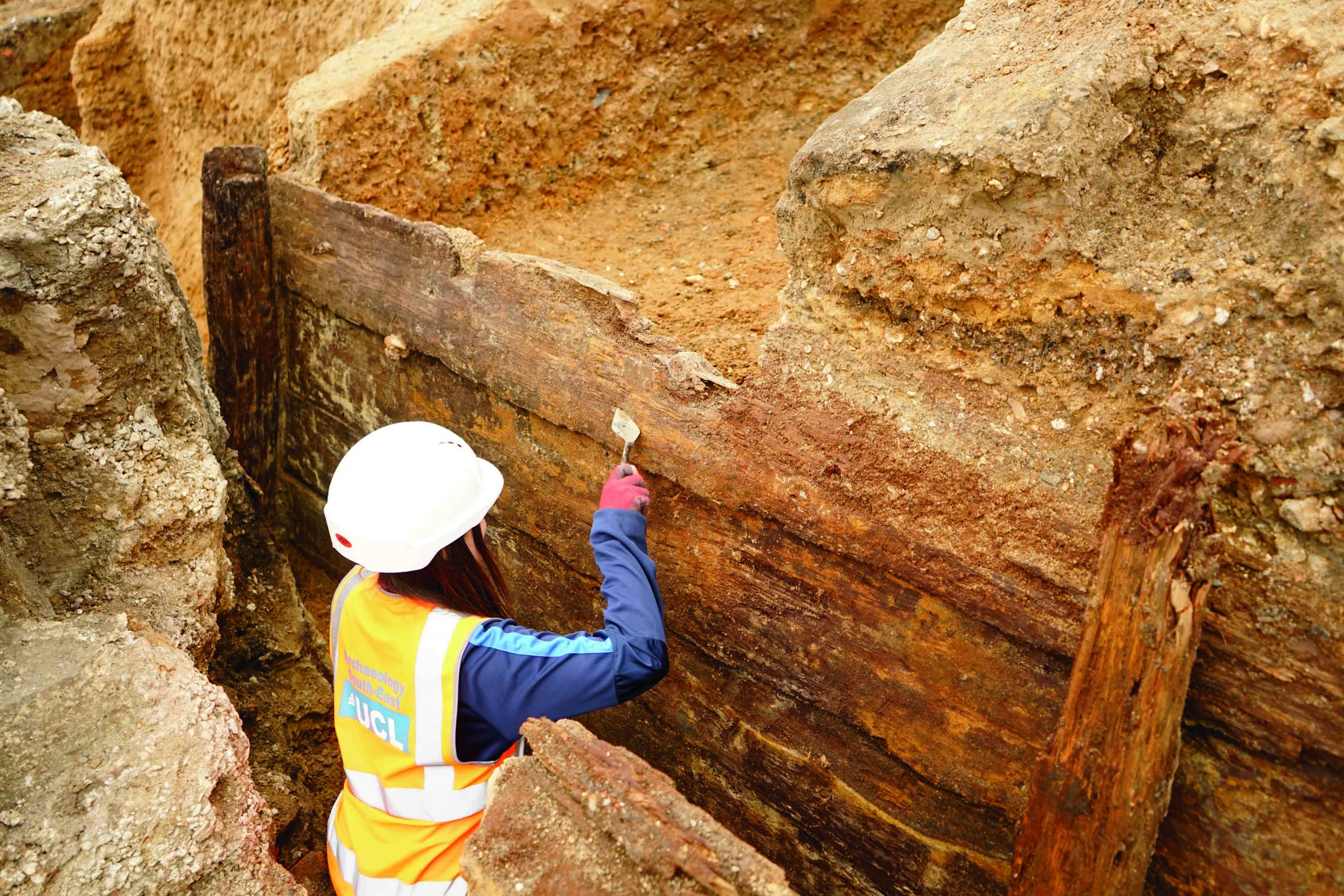CAMBRIDGE, MASSACHUSETTS—Live Science reports that five Roman-style longswords were discovered in a 1,500-year-old house located in central Sardis, western Turkey’s ancient capital of the kingdom of Lydia, by Harvard University's Archaeological Expedition of Sardis under the direction of Nicholas Cahill of the University of Wisconsin–Madison. Only three swords had previously been found in the city. Buckles and a lead seal also recovered from the house suggest the residents may have been connected to the military or the city’s civil authorities, according to Vanessa Rousseau of the University of St. Thomas. She noted that the house had been furnished with wall paintings that mimic draped curtains and polychrome marble, and terracotta floor tiles that were imprinted before firing with a dog’s paw prints and finger-drawn outlines of birds resembling chickens or ducks. The house had been occupied for approximately 200 years before it was destroyed by an earthquake in the early seventh century, she concluded. To read about a Roman ritual deposit unearthed at Sardis, go to "Artifact."
Longswords and Ancient Dog Print Discovered in Sardis
News February 3, 2021
Recommended Articles
Features January/February 2026
The Cost of Doing Business
Piecing together the Roman empire’s longest known inscription—a peculiarly precise inventory of prices

Digs & Discoveries September/October 2025
A Day at the Hunt
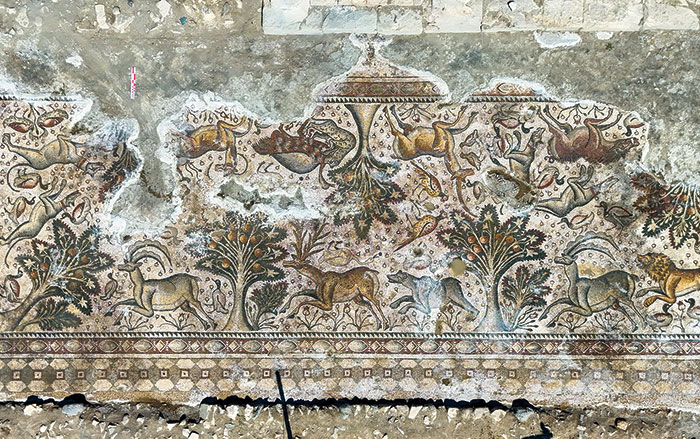
Digs & Discoveries May/June 2022
Canyon of the Ancestors
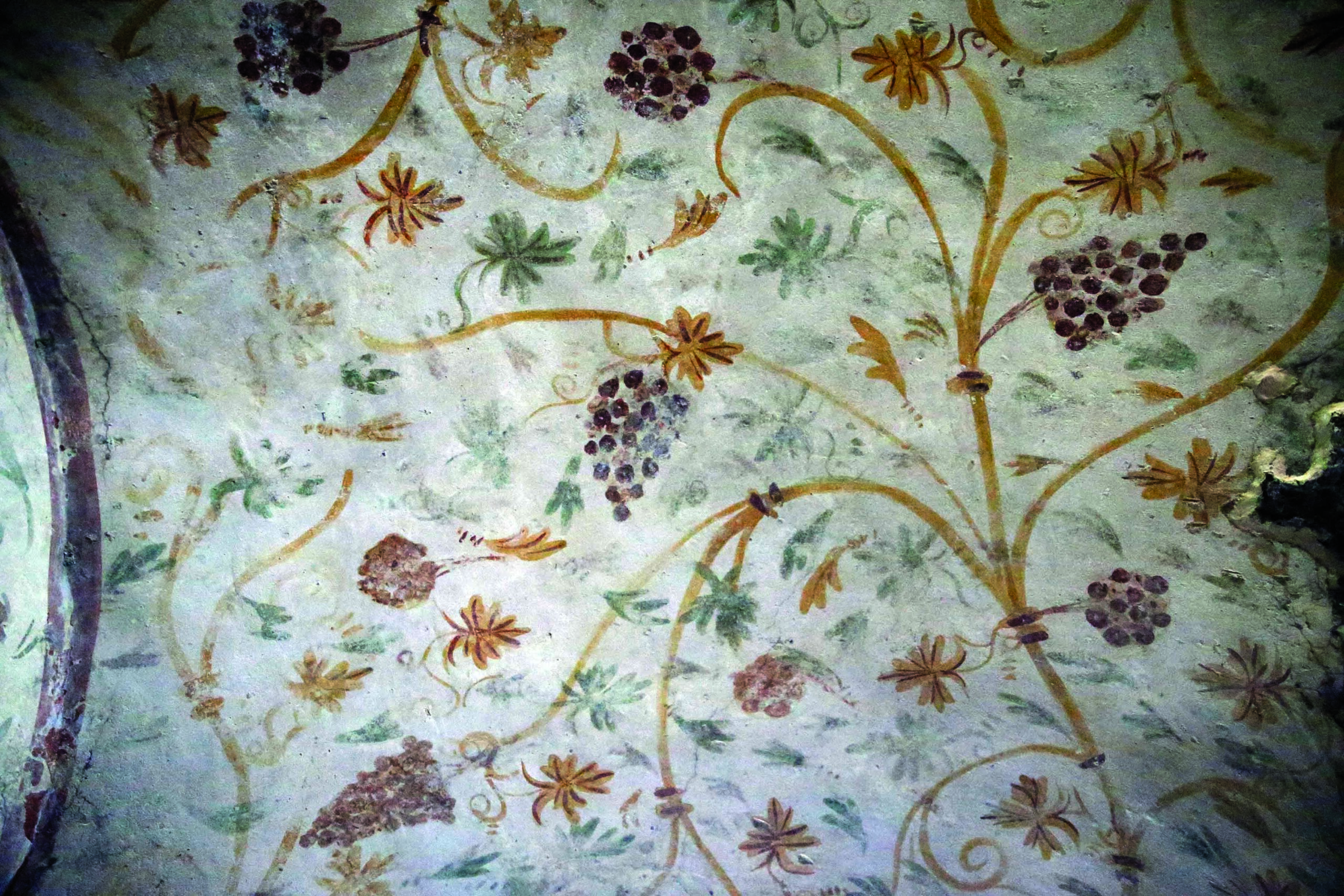
Digs & Discoveries September/October 2021
Kaleidoscopic Walls

-
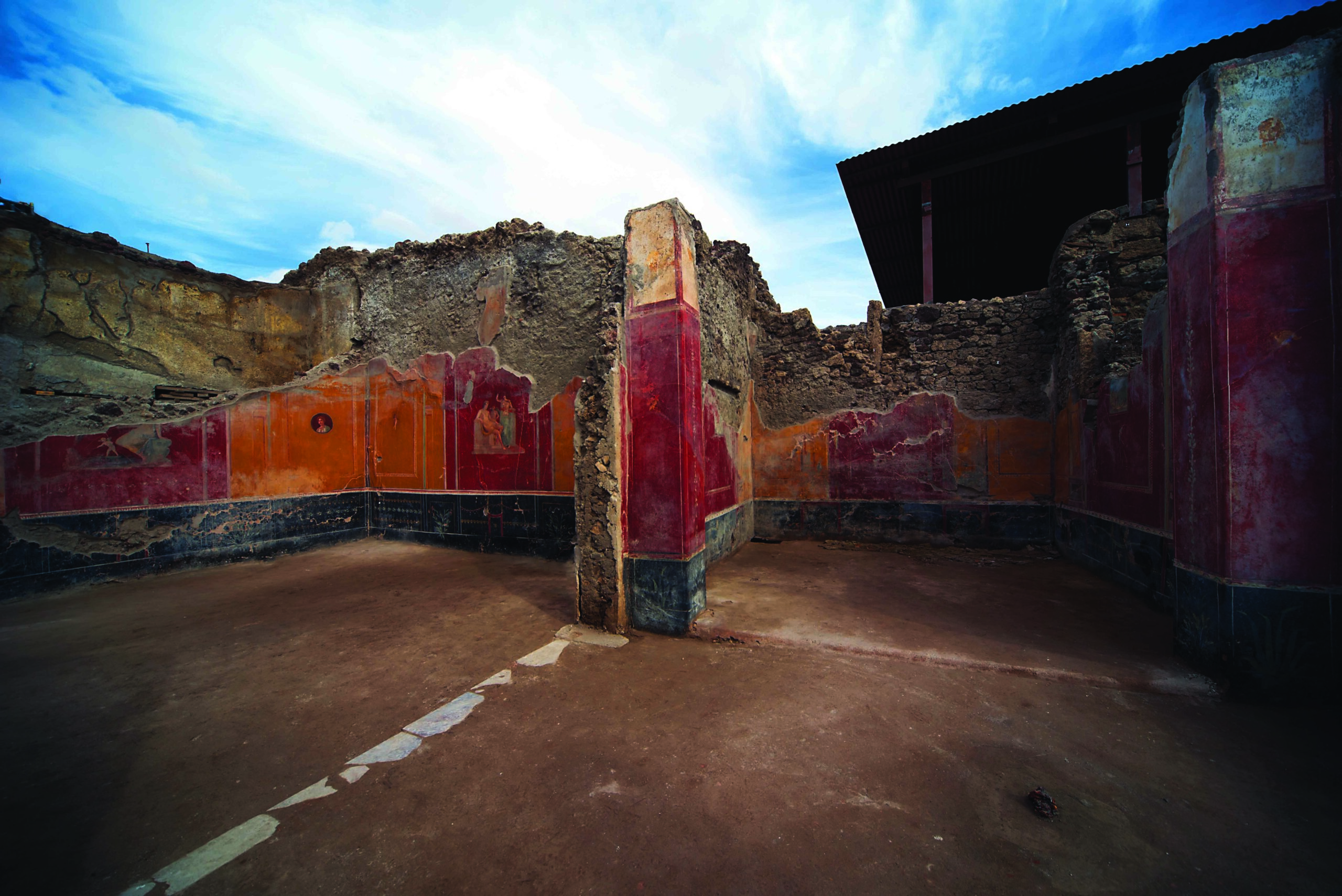 (Pasquale Sorrentino)
(Pasquale Sorrentino) -
Features January/February 2021
Return to the River
Members of Virginia’s Rappahannock tribe are at work with archaeologists to document the landscape they call home
 (Courtesy Julia King)
(Courtesy Julia King) -
Letter from Woodhenge January/February 2021
Stonehenge's Continental Cousin
A 4,000-year-old ringed sanctuary reveals a German village’s surprising connections with Britain
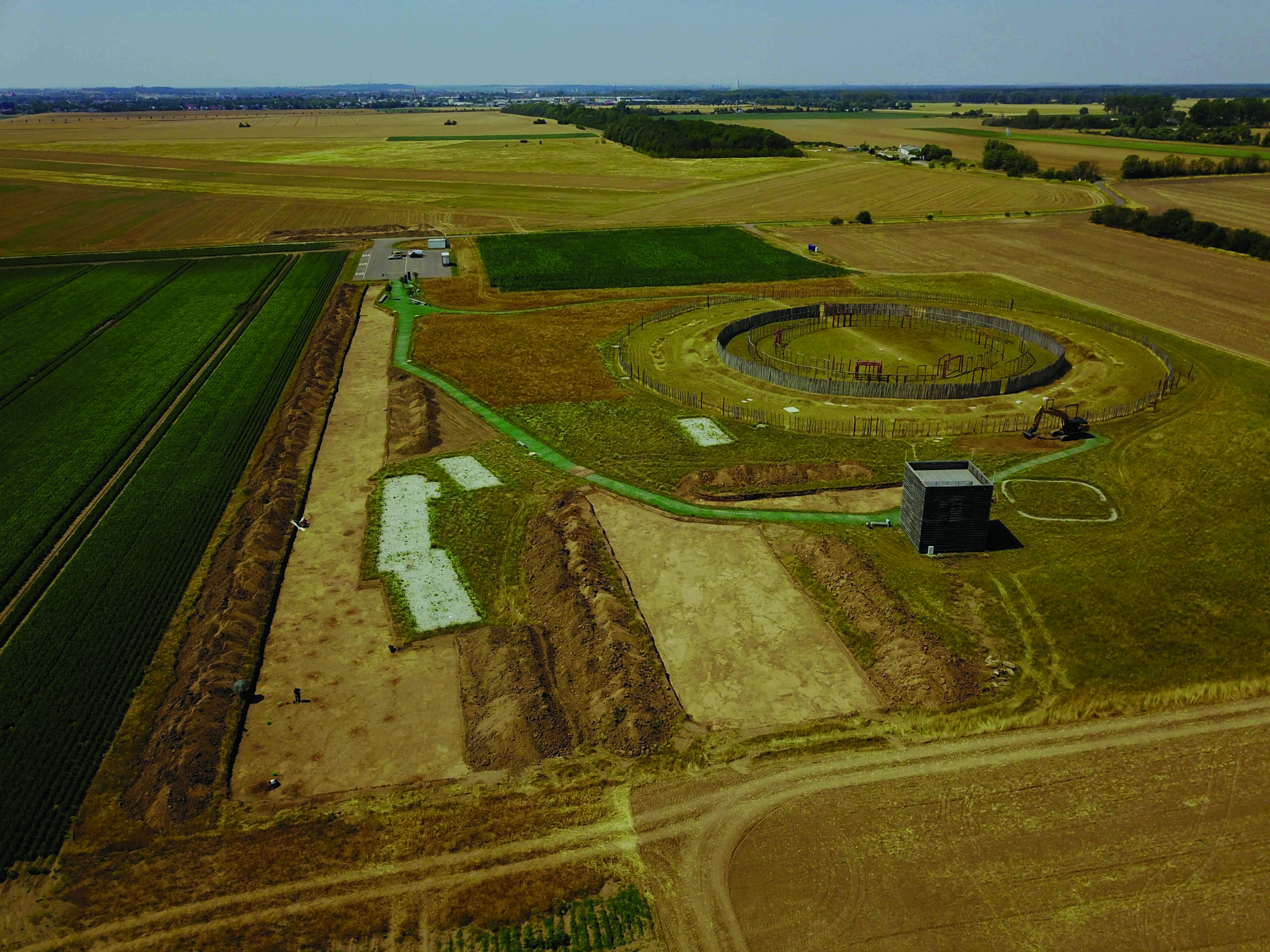 (Photo Matthias Zirn)
(Photo Matthias Zirn) -
Artifacts January/February 2021
Inca Box with Votive Offerings
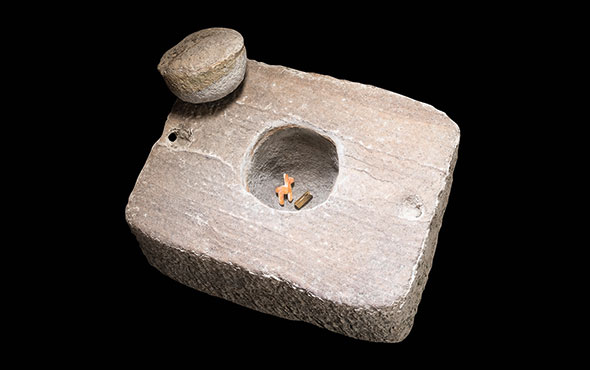 (Courtesy Teddy Seguin/Université Libre de Bruxelles)
(Courtesy Teddy Seguin/Université Libre de Bruxelles)


